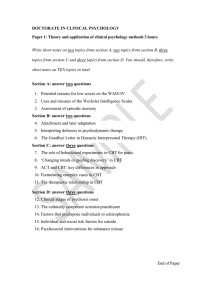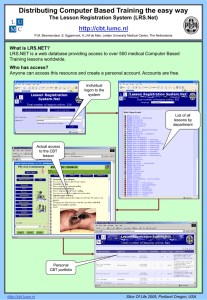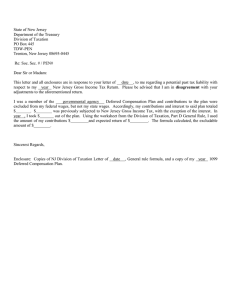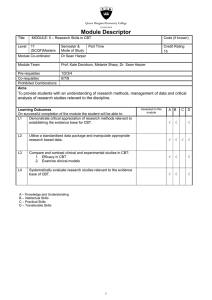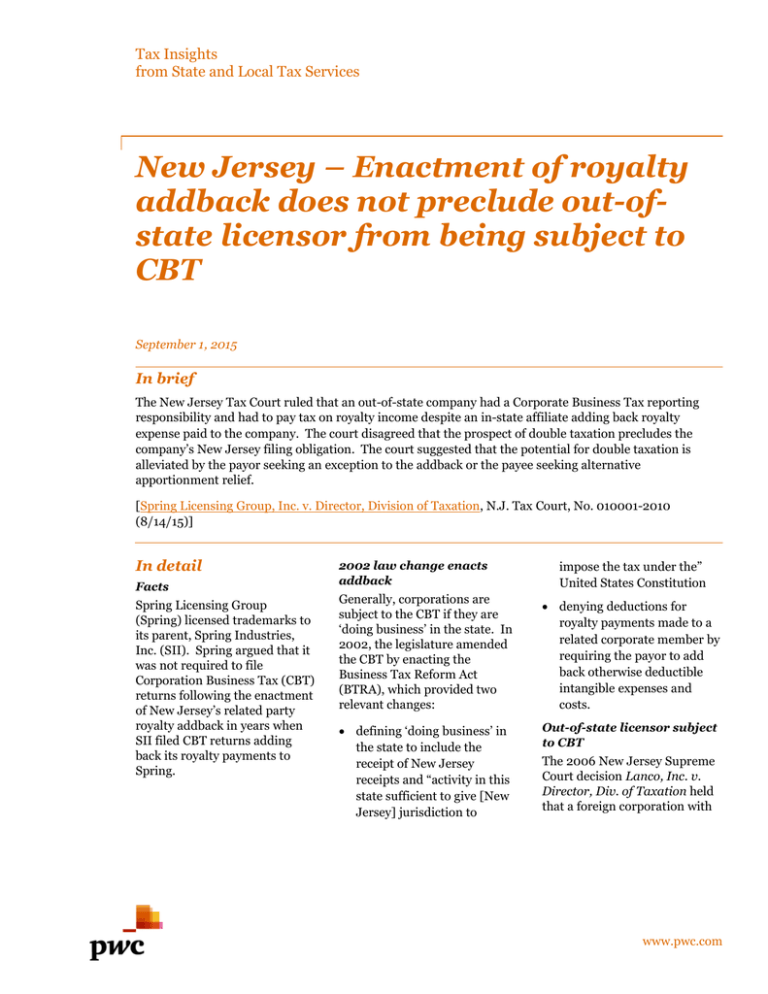
Tax Insights
from State and Local Tax Services
New Jersey – Enactment of royalty
addback does not preclude out-ofstate licensor from being subject to
CBT
September 1, 2015
In brief
The New Jersey Tax Court ruled that an out-of-state company had a Corporate Business Tax reporting
responsibility and had to pay tax on royalty income despite an in-state affiliate adding back royalty
expense paid to the company. The court disagreed that the prospect of double taxation precludes the
company’s New Jersey filing obligation. The court suggested that the potential for double taxation is
alleviated by the payor seeking an exception to the addback or the payee seeking alternative
apportionment relief.
[Spring Licensing Group, Inc. v. Director, Division of Taxation, N.J. Tax Court, No. 010001-2010
(8/14/15)]
In detail
Facts
Spring Licensing Group
(Spring) licensed trademarks to
its parent, Spring Industries,
Inc. (SII). Spring argued that it
was not required to file
Corporation Business Tax (CBT)
returns following the enactment
of New Jersey’s related party
royalty addback in years when
SII filed CBT returns adding
back its royalty payments to
Spring.
2002 law change enacts
addback
Generally, corporations are
subject to the CBT if they are
‘doing business’ in the state. In
2002, the legislature amended
the CBT by enacting the
Business Tax Reform Act
(BTRA), which provided two
relevant changes:
• defining ‘doing business’ in
the state to include the
receipt of New Jersey
receipts and “activity in this
state sufficient to give [New
Jersey] jurisdiction to
impose the tax under the”
United States Constitution
• denying deductions for
royalty payments made to a
related corporate member by
requiring the payor to add
back otherwise deductible
intangible expenses and
costs.
Out-of-state licensor subject
to CBT
The 2006 New Jersey Supreme
Court decision Lanco, Inc. v.
Director, Div. of Taxation held
that a foreign corporation with
www.pwc.com
Tax Insights
no physical presence in New Jersey
was subject to the CBT when it
received licensing fees attributable to
the state. Even prior to Lanco, New
Jersey regulations provided that
foreign companies receiving royalty
income from New Jersey companies
were subject to the CBT.
Spring did not contest the Division’s
assertion of nexus.
Accordingly, the court determined
that “Spring should have filed duly
completed CBT returns for 2002 and
2003, and paid tax on the portion of
royalty income allocated to New
Jersey.”
Statutory addback does not
preclude out-of-state licensor’s
CBT filing responsibility
Spring asserted that it need not file
CBT returns after enactment of the
BTRA because New Jersey is made
whole since it captures the royalty
income via the addback. Otherwise,
CBT is paid twice: (1) once from the
foreign payee and (2) once from the
payor.
The court disagreed, noting that, as a
separate company state, “duplication
of reporting by corporate family
members for an item . . . is not out of
the realm of normalcy. . . . Thus, a
CBT return filed by a foreign IHC
pursuant to Lanco while the related
member files an independent CBT
return, is not a necessarily
extraordinary event.”
Additionally, the court noted that
Spring could have other New Jersey
sourced income that it would be
obligated to report on a CBT return.
Accordingly, the court held that the
BTRA’s enactment of addback “does
not exclude or exempt Spring from
filing CBT returns to report its royalty
income.”
Double taxation addressed
through addback exceptions
For a payor, the court noted that “the
legislature’s response to the specter of
double-taxation is the ability of the
payor to claim an exception to the
addback as being ‘unreasonable.’ The
CBT form provides an exception for
intangible expenses and costs paid to
related corporations filing in New
Jersey.
For a payee, the court suggested that
the Division has the obligation to
consider adjustments if the inclusion
of income results in some form of dual
taxation. To that end, the court noted
that nothing precluded Spring from
filing a return with a refund claim for
relief on grounds that SII’s addback
resulted in unfair or unreasonable
dual apportionment.
The takeaway
This decision highlights the risk that
aggressive states may target out-ofstate nonfiling licensing companies
even when the state is purportedly
made whole due to the addback of
related party expenses. On audit,
nonfilers could be subject to tax,
interest, and penalties without the
ability for the in-state payee to amend
returns and take an addback
exception to the extent statutory years
are closed. Spring Licensing opens
the door for licensor corporations to
request relief if double taxation is
present.
Let’s talk
For more information on the Spring Licensing decision, please contact:
State and Local Tax Services
Hardeo Bissoondial
Partner, New York
+1 (646) 471-8510
hardeo.bissoondial@us.pwc.com
Leonard DiMeglio
Director, Florham Park
+1 (973) 236-5549
leonard.dimeglio@us.pwc.com
Click here to access our library of past state and local tax Insights.
Stay current and connected. Our timely news insights, periodicals, thought leadership, and webcasts help you
anticipate and adapt in today's evolving business environment. Subscribe or manage your subscriptions at:
pwc.com/us/subscriptions
© 2015 PricewaterhouseCoopers LLP, a Delaware limited liability partnership. All rights reserved. PwC refers to the United States member firm, and may sometimes refer to the PwC network. Each
member firm is a separate legal entity. Please see www.pwc.com/structure for further details.
SOLICITATION
This content is for general information purposes only, and should not be used as a substitute for consultation with professional advisors.
PwC United States helps organisations and individuals create the value they’re looking for. We’re a member of the PwC network of firms in 157 countries with more than 195,000 people who are
committed to delivering quality in assurance, tax and advisory services. Find out more and tell us what matters to you by visiting us at www.pwc.com/US.
2
pwc

